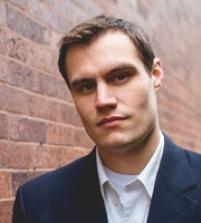
The Affair of the Sausages and Religious Freedom
Five hundred years ago today, some Swiss people ate sausages. This was a major event in the history of Christianity.
The Affair of the Sausages, as it came to be called, is notable for being one of the all-time great church history Wikipedia page titles (behind, of course, “Feast of the Ass”). But more than that, it marked a significant turning point in the Protestant Reformation in Switzerland and beyond.
This historical event is not likely to be commemorated outside of the Christian traditions that trace their lineage back to sixteenth-century Switzerland. I first learned about it a few years ago when I was invited to a Mennonite Wurstessen (literally “sausage-eating”) party, which featured a lively debate about whether eating vegan chorizo was in keeping with the spirit of the occasion. But on its five hundredth anniversary, it is worth revisiting the history of the Affair of the Sausages and what it can tell us about freedom and religion.
On March 9, 1522, several people gathered for dinner in the home of Christoph Froschauer, a printer who lived in Zurich. Although it was during the liturgical season of Lent and the eating of meat was forbidden, Froschauer and his wife Elise served sausages instead of fish to the visitors. Their reasoning was that Lenten fasts were not prescribed in the Bible and thus not obligatory for Christians. Though Froschauer was not in principle opposed to fasting, the biblical texts he was printing did not necessitate abstention from meat for this forty-day period. And so—as a celebration of Christian freedom, as an act of political theater, and out of a genuine desire for a high-protein meal—he feasted on dry meats with his wife, his employees, and two local priests.
Word of their transgression quickly got out, and the people who partook of the sausages were jailed for breaking canon law. Swiss reformer Huldrych Zwingli, who was present but did not inhale, quickly took to the pulpit to defend them. Historians think Zwingli helped stage the Wurstessen, planning the event alongside Froschauer with the intention of challenging the legal obligation to fast during Lent.
In his sermon—subsequently printed by Froschauer after his release—Zwingli interprets the New Testament passages that pertain to fasting, keeping traditions, and abstaining from certain foods. He argues that fasting serves a valuable purpose, especially for disciplining the desires of idle people, but that there is no biblical basis for making fasting or abstaining from meat legally obligatory for all Christians. He writes, “abstinence from meat and drink is an old custom, which however later by the wickedness of some of the clergy came to be viewed as a command.” He summarizes his case by saying, “if you will fast, do so; if you do not wish to eat meat, eat it not; but leave Christians a free choice in the matter.”
Zwingli’s plea for freedom should not be seen simply as an expression of libertarian freedom or anti-authoritarian rebellion. The differences show us why the Affair of the Sausages is still relevant after five centuries.
It would be a misinterpretation to conclude from Zwingli’s invocation of sola scriptura that he disputed the authority of the bishops or city council to legislate people’s behavior. As Reformation historian Daniel Owings notes, “For Zwingli, the gospel was not freedom from the law per se, but freedom from human laws claiming divine authority.”[1] It is necessary within any society for people to create and enforce laws that constrain others, regardless of whether these laws have a basis in religious authority. Though divine authority is higher than human authority, this does not give believers the right to dismiss or disobey human authority with impunity. The real danger, according to Zwingli, is when religious authority is improperly invoked to justify such laws—the principal target of his polemic is not law but idolatry. While freedom is central to Zwingli’s political theology, the freedom that comes from the gospel is first and foremost freedom from false claims to ultimate authority.
Likewise, we misread Zwingli if we think that his appeal for freedom is his last word on the matter. In the sermon, he reflects on I Corinthians 10, “‘I have the right to do anything,’ you say—but not everything is beneficial. ‘I have the right to do anything’—but not everything is constructive. No one should seek their own good, but the good of others.” Zwingli speaks at great length whether fasting in a particular place or at a particular time is the prudent thing to do for the sake of one’s neighbors. For Zwingli, that is, freedom from obligation is only the first step, and the necessary next step is to reflect on whether one’s actions could offend or injure others. As Bruce Gordon writes, “The freedom of the Christian, and here Zwingli echoed Luther, was found in Christian love, and not merely liberation from regulations.” People are free not so we can do whatever we want, but so we can do whatever is most compassionate.
As Laurie Zoloth recently argued, religious traditions often involve appeals to an authority that transcends earthly laws and customs. But these traditions also involve exhortations to care for others, to take their needs and vulnerabilities into consideration as one decides how to act. For Zwingli—and for the Reformed and Anabaptist believers who inherited his movement—divine authority can call into question and challenge human institutions, but this same authority also demands that people factor the well-being of others into the ways they use their freedom.
Though it helped spark the Reformation in Switzerland, the Affair of the Sausages remains an underappreciated moment in religious history (not to mention culinary history). But even after five hundred years, these sausage-eating rebels have something to contribute to contemporary discussions about when and how to claim religious freedom.
[1] Daniel Owings, "Idols, Ideals, and Ideology: The Critique of False Religion in the Sixteenth Century," PhD diss. (University of Chicago, 2022)


